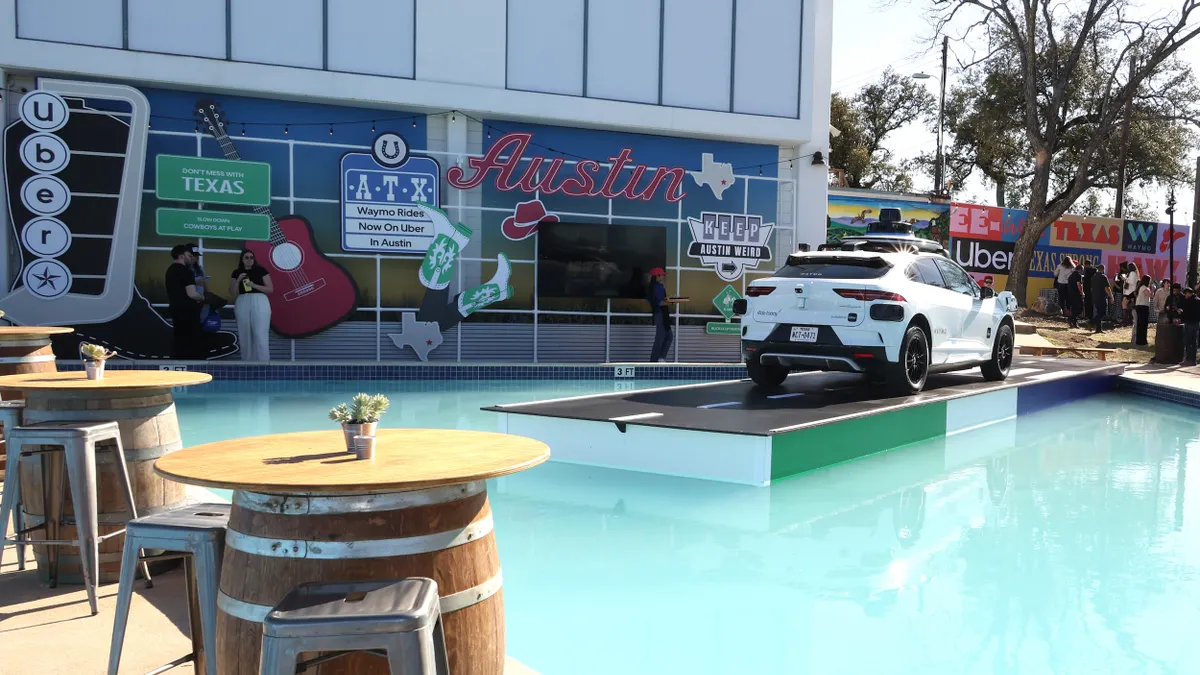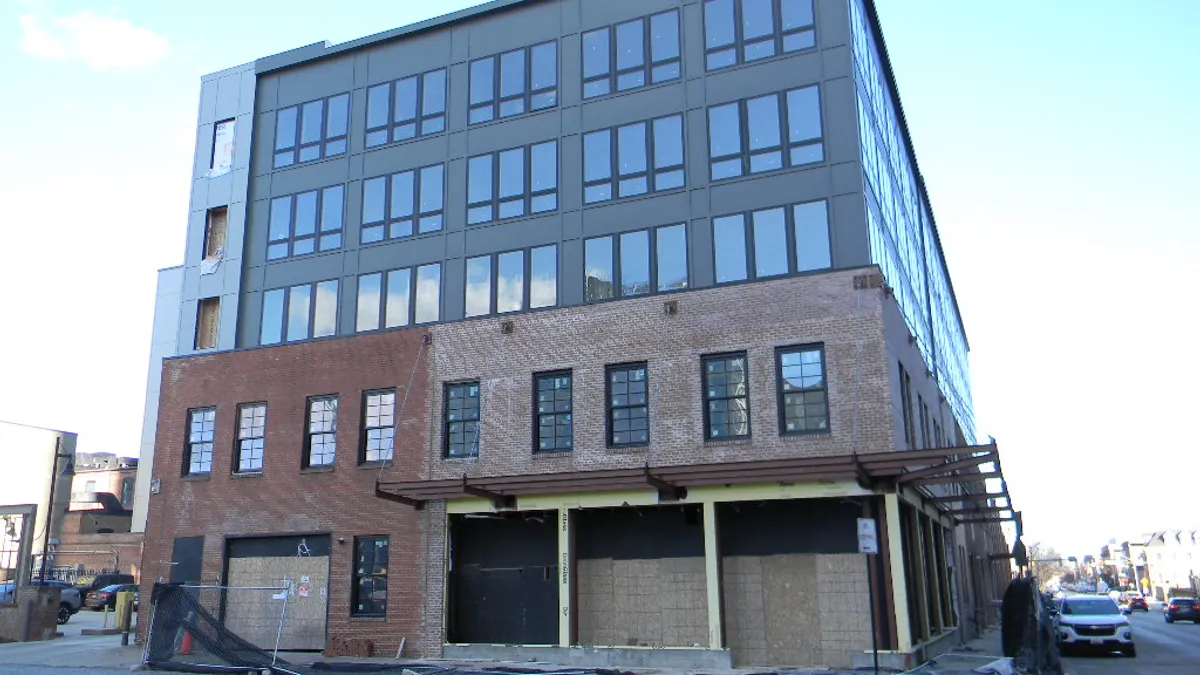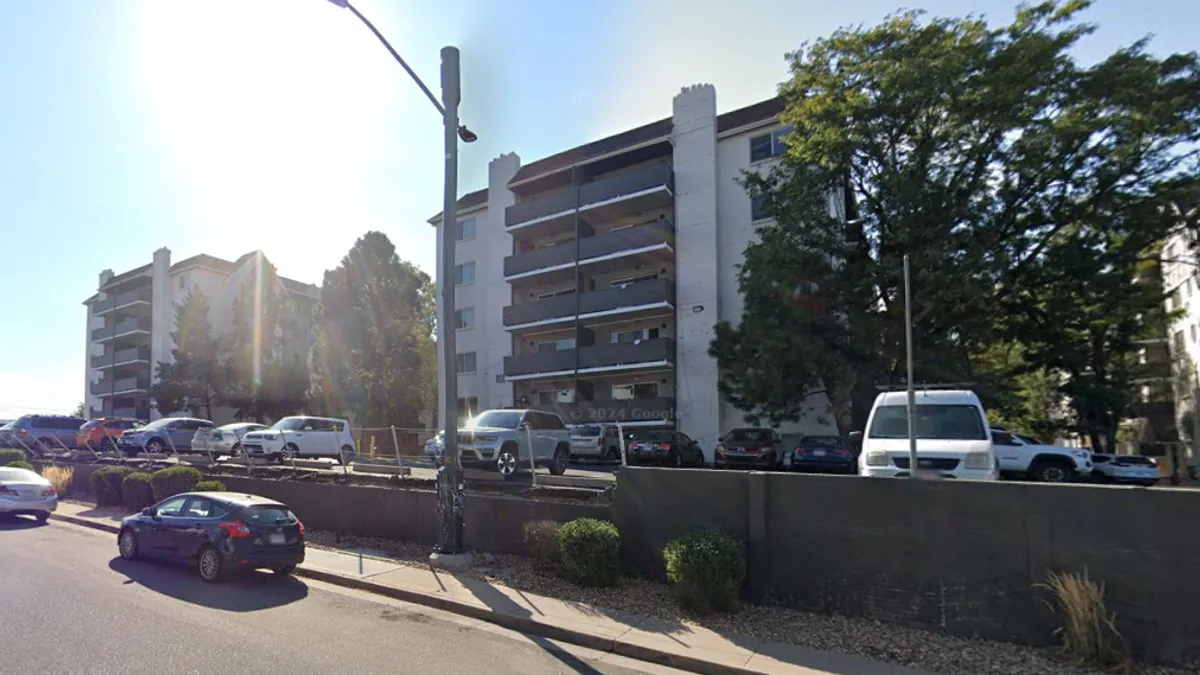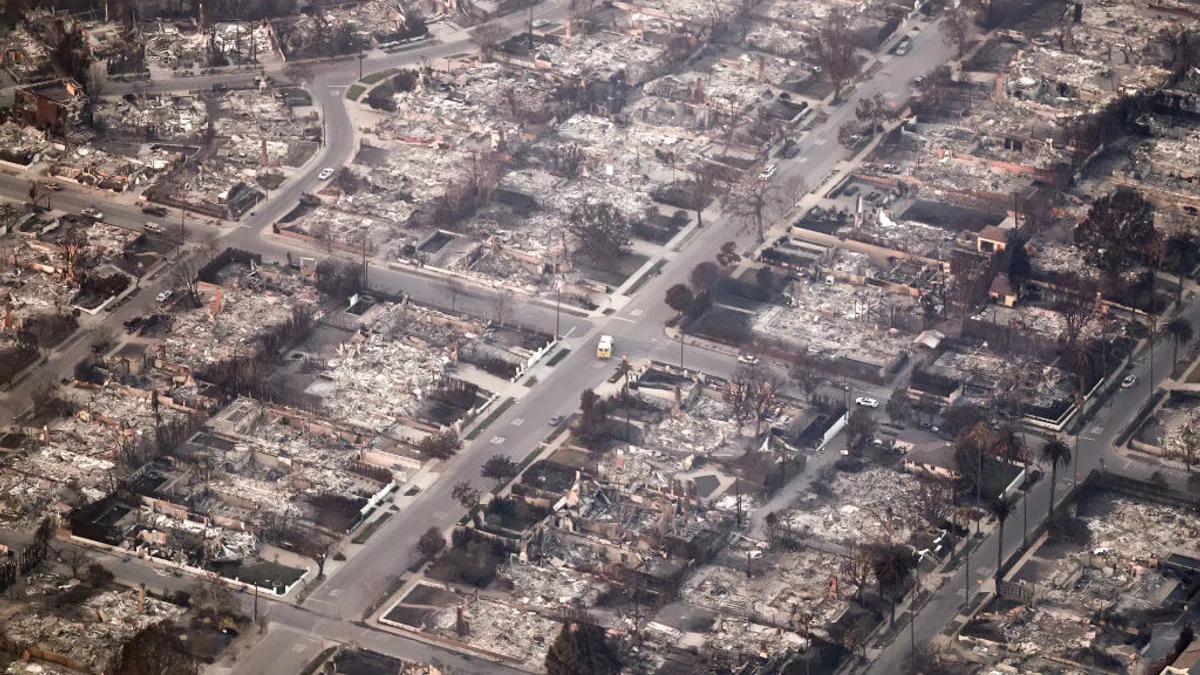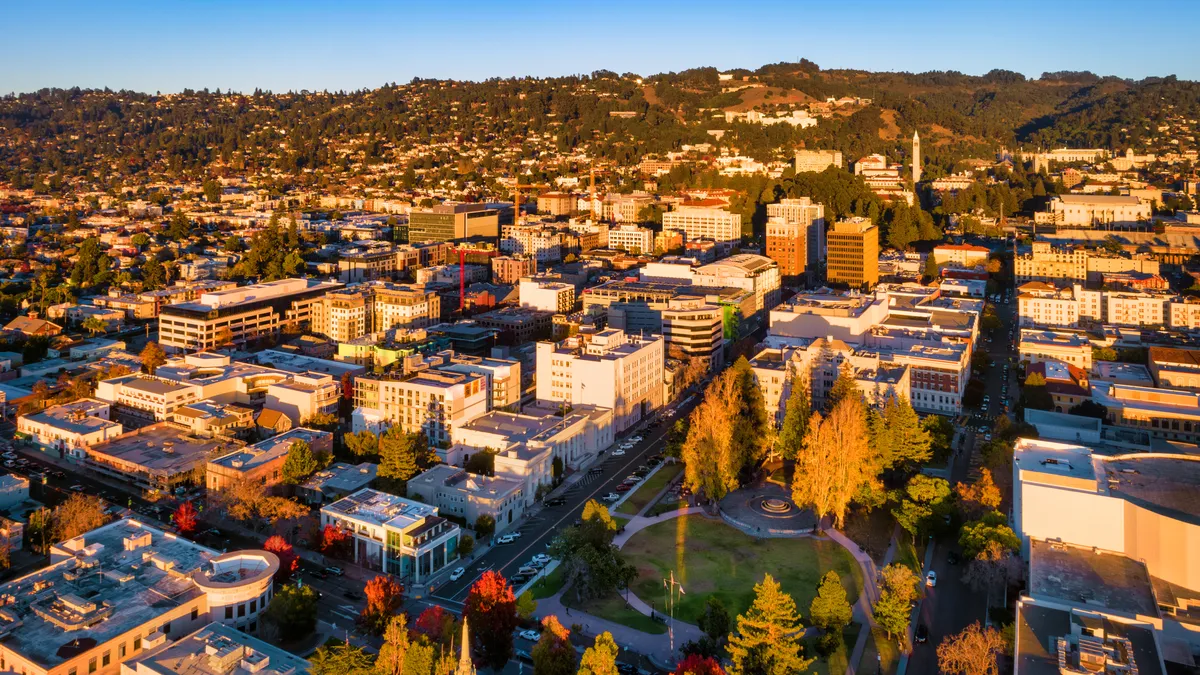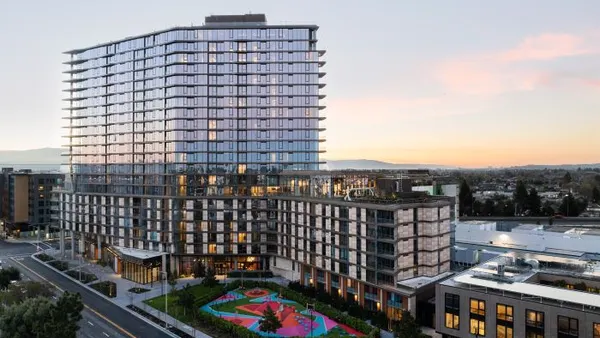Across the U.S., some cities are turning parking lots into overnight safe havens for people experiencing homelessness who sleep in their vehicles.
Safe parking programs provide individuals sheltering in their vehicles a place to park overnight that’s more secure than many streets or empty lots, proponents say. The programs also offer people experiencing homelessness “an opportunity to be somewhat stable for a period of time,” since they can return to the same lot night after night and don’t need to worry about breaking the law by parking on the street, said Donald Whitehead, executive director at the National Coalition for the Homeless. That stability can streamline their ability to connect with social services.
Many safe parking program locations are staffed. Some provide access to social services and resources like Wi-Fi, sanitation stations and food.
Despite the benefits of safe parking programs, few experts and advocates view them as a long-term answer to homelessness. “It’s a myopic solution at best,” Whitehead said, noting that few people get a restful night’s sleep in their car.
Vehicular homelessness is “nefarious because it's particularly invisible,” said Matthew Tecle, executive director of Safe Parking LA, which operates six lots across Los Angeles. Despite vehicular homelessness’ invisibility, those living in vehicles account for more than 44% of the unsheltered homeless population in Los Angeles County, according to the 2023 Safe Parking LA Impact Report.
Many who shelter in their vehicles have some income, whether from wages, Social Security or other benefits payments, Tecle said. Often, they just need a little help to move into more stable housing situations, he added.
The number of safe parking programs operating across the U.S. is hard to pin down. The National Vehicle Residency Collective, which works to decriminalize vehicle residency, currently lists programs in a handful of states, including Indiana, New Mexico, Oregon, Texas and Wisconsin.
A Minnesota city’s program forms community
The Safe Bay program in Duluth, Minnesota, wrapped up its second season at the end of October 2024. Due to Duluth’s harsh winter weather, the program is open only from June through October. In its first season, the program hosted 241 individuals, said Joel Kilgour, project organizer with Stepping On Up, a collaborative initiative led by service providers that identified the need for a safe parking program. The parking lot Safe Bay operates in is owned by the Damiano Center, a local organization that provides emergency services to individuals in need.
Safe Bay is staffed nightly from 8 p.m. to 8 a.m. As Stepping On Up was developing Safe Bay, focus group participants indicated that staff would be necessary for the space to feel safe, Kilgour said.
Employees also erect a temporary fence around the lot every night and remove it each morning. “It isn't easy for the staff, but it provides people with some sense of security,” Kilgour said. Safe Bay offers Wi-Fi and a mobile hygiene unit in which people can shower.
Many new guests are referred by law enforcement, hospitals or domestic violence shelters, Kilgour said. Any family or household makeup is welcome.
Within Safe Bay, a community has sprung up, with some guests setting up camping chairs in the evenings to hang out together and share resources, Kilgour said, adding that he and his colleagues want to invest more in supporting friendships among participants. “What a great opportunity to have some groups and conversations about challenges people are facing and sharing resources in a more coordinated way,” he said.
Of the approximately 250 people who used Safe Bay in 2023, Kilgour and his team can verify that 14 moved into housing during the season. While this may not sound like a lot, it’s higher than the percentage typically moving from shelters to housing and is especially noteworthy given the current lack of affordable housing available in the community, he added.
The success rate might be a function of the higher proportion of individuals at Safe Bay who are experiencing homelessness for the first time, some of whom have jobs and other resources that can make it easier to move back into housing, Kilgour said. He also credits the program’s outreach worker who focuses on connecting individuals with any resources they might need.
The fact that some of the staff have experience living in their cars also makes the program more welcoming for those staying in the Safe Bay lot, Kilgour said. “We could offer a nice, safe place for people to park, and if staff doesn't get it, it’s not going to be a place that people want to show up,” he said.
Volunteers also support the Safe Bay program, and many guests consider them a highlight of their experience, Kilgour said. That’s because guests know the volunteers are at Safe Bay because they care, he explained.
Two California localities turn to safe parking programs
Safe Parking LA operates six lots in Los Angeles County, including one at the West Los Angeles VA Medical Center and another adjacent to Los Angeles International Airport. In total, the six lots can accommodate 174 vehicles, Tecle said.
The sites are open every day from about 7:30 p.m. to 7:30 a.m. During these hours, a security officer is on-site, Tecle said. The sites also offer accessible bathrooms and hand-washing stations. Some provide Wi-Fi, and the VA location provides food, he adds.
The program’s goal is to be as low-barrier as possible for those interested in enrolling, but participants do need a valid driver's license, Tecle said. If an individual’s car insurance or registration is out of date, they may be able to enroll on a provisional basis. Safe Parking LA will then work with them to bring their documents up to date, he said.
In keeping with the goal of being low-barrier, Safe Parking LA coordinates and communicates with other agencies serving people experiencing homelessness. Agency workers can call on behalf of a client, or the clients can call themselves to enroll over the phone, Tecle said. In 2023, 126 of 512 participants transitioned into housing, according to the 2023 Impact Report.
The Safe Parking Program offered by the city of San Diego encompasses four locations with a total capacity of about 220 vehicles, said spokesperson Matthew Hoffman. All lots accept pets and families. Participants can remain in the program as long as they are engaging with case managers and program services to create housing plans. The city contracts with the Jewish Family Service of San Diego to operate the program. Three of the four lots are on city property; the fourth is located at JFS.
The program offers restrooms and access to mental health services and job training, among other services. The goal is to connect individuals to the resources they need to ensure their experiences with homelessness are brief and non-recurring, Hoffman said. “Providing families and individuals with safety and stability gives them an opportunity to secure housing, many through their own self-resolve,” he added.






